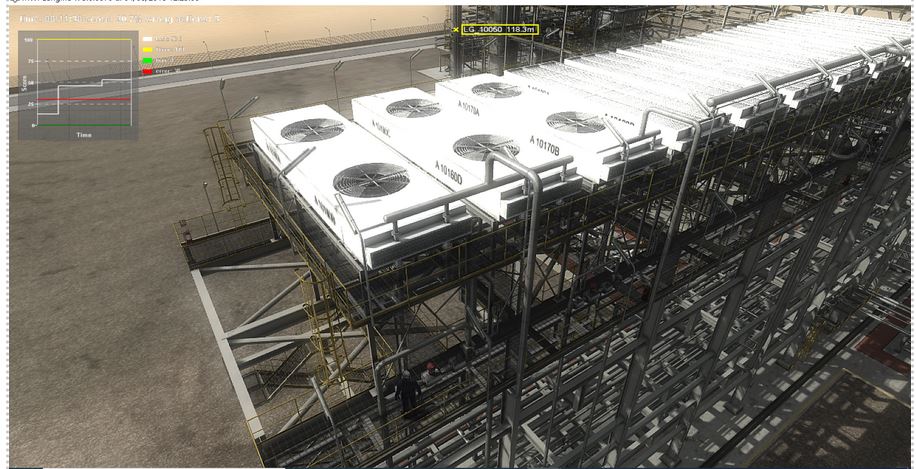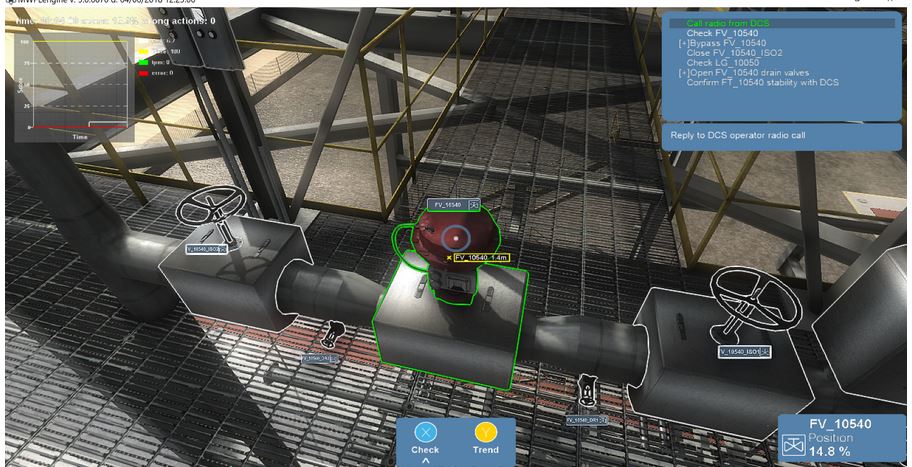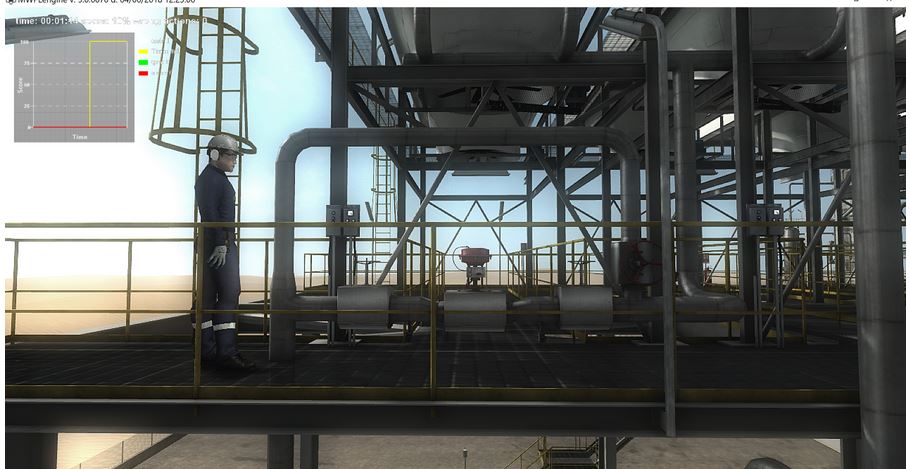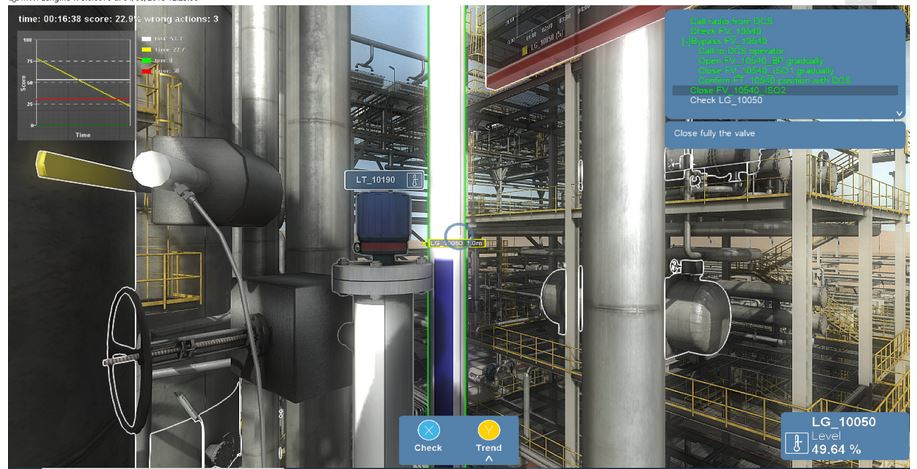The SuPER Lab has three kind of facilities for experimental activities:
- Laboratories of Chemical Plants, traditional labs located at
- the University of Milan “Pilot Plant Labs” and “Sustainable Food Processes”, Via Venezian 21, 20133 Milano
- the Catholic University of Milan “Bio-processes for Food and Beverage”, Via Emilia Parmense 84, 29122 Piacenza
- the Politecnico di Milano, “Process Engineering”, Piazza Leonardo da Vinci 32, 20133 Milano
- Laboratories within Chemical Plants, completely new concept of lab of Politecnico di Milano located in a circular oil-refinery “POLIMI Permanent Labs at Itelyum”, Via Tavrnelle 14, Pieve Fissiraga (LO)
- Immersive laboratories of “Process Engineering and Operations”, full immersive labs for teaching and training adopting realistic three-dimensional avatars, University of Milan, Via Golgi 19, Milano and Politecnico di Milano (2), Piazza Leonardo da Vinci 32, Milano and Via Lambruschini 4, Milano
Different equipements are present, the most important are here listed:
1 – Laboratories of Chemical Plants
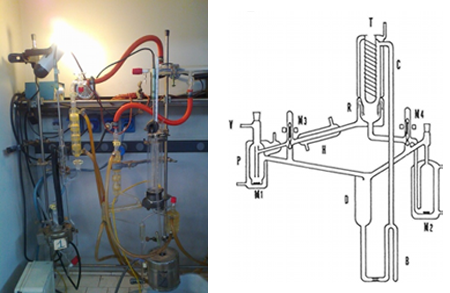
VAPOR-LIQUID EQUILIBRIUM STUDY – The study of the vapor-liquid equilibrium of mixtures with two or more components is necessary to characterize the thermodynamic properties of the same mixtures in order to quantitatively assess their possible separation by distillation. In the SuPER laboratories two active Hala distillers are present. These are designed to obtain the boiling temperature and the vapor and liquid composition of a mixture. Both the distillators are connected to the same line and, by using a suitable vacuum pump, it is possible to lower the operating pressure up to 1 mbar. Recently, the research involved a study to determine the relative volatilities of the biodiesel constituents and its analogue epoxidized.
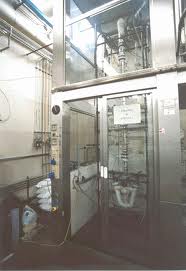
DISTILLATION COLUMN – In the laboratory equipment is available, in close connection with the studies of vapor-liquid equilibrium, a distillation column in glass dishes at 15 (total height equal to 5 m) arranged to be able to be used both continuously and in bacth mode. Azeotropic distillation of the water/acetic acid/p-xylene has been recently carried out.
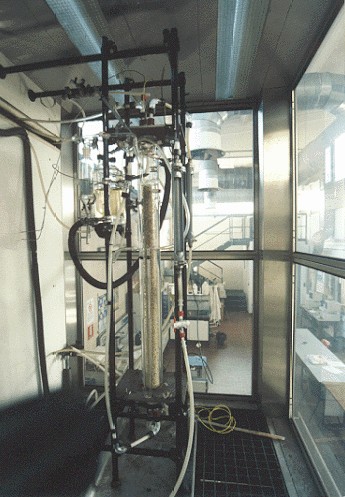
ADSORPTION COLUMNS – In the laboratory facilities are available two glass adsorption columns ( 1 meter heigth ) with structured ( Sultzer ) and unstructured ( Rashig ) packing adapted to operate continuously. At the moment the adsorption equipement is used for studying the biogas upgrading through water washes. Also on this interesting field the computer simulation is used for the thermodynamic interpretation of the sorption phenomena and the economical analysis of the whole process.
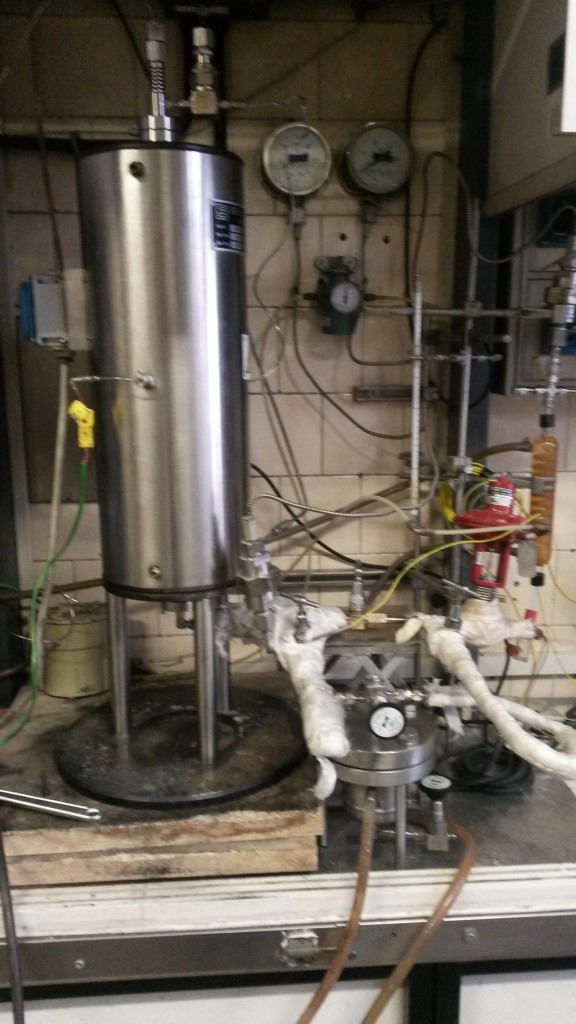
The Fischer-Tropsch synthesis (FTS ) is a well known industrial process that transforms the syngas ( CO + H2 ) , using catalysts based on Fe or Co , in hydrocarbons in the range from C1 to C100. Two main features of the Fischer-Tropsch synthesis are: (1) the production of non-selective wide range of hydrocarbon products, including: olefins, paraffins, and oxygenated products; (2) the liberation of a large amount of heat due to the highly exothermic reactions . The distribution of the products is influenced by temperature , the composition of the inlet gas mixture ( H2/CO ) , pressure and by the nature and composition of the catalyst employed. At the SuPER Lab facilitier a bench scale tubular FTS reactor operating at 20 bar is aviable, with an online dedicated micro-GC for the composition analysis. Both the catalysts preparation and the study on their stability and performances are made. Together with Politecnico di Milano a study on the kinetics of FTS reaction in terms of the selection of a good kinetic model and its parameter optimization started in 2013.
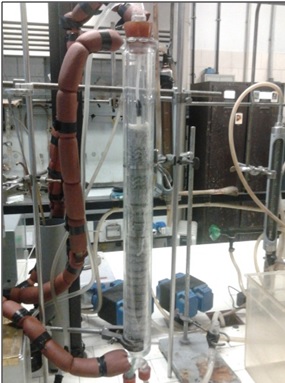
ENRICHED AIR – This is a new process layout to intensify and make more sustainable chemical processes that use open-loop cooling/heating systems. This new process demonstrates the possibility to recover a stream of highly-enriched air without any additional operational cost, but simply exploiting differently the existing energy sources. Enriched air can therefore be used to reduce the variable costs of the intensified plants as well as to reduce the volume of process facilities dedicated to steam generation or to directly increase the net operating margin as additional product (industrial or medical gas). In SuPER Lab facilities a batch apparatus for the enriched air production is available. The enriched air volume together with its composition is determined by micro-GC analysis. Also an instrument for the O2 concentration has been recently added to the plant in order to investigate the dynamics of the desorption.
2 – Laboratories within Chemical Plants
The SuPER Centre is the first research group, in the acquaintance of the members, owning a whole building within a real chemical plant. The Industrial Laboratory is called the “POLIMI Permanent Labs @ Itelyum Regeneration” and Itelyum Regeneration is the largest exhausted oil refinery of Italy. The key-point is to strengthen the academic-industrial interactions on topics of applied research that strongly benefit from the existence of real large-cale plants.
In practice, research activities dealing with hazardous operations and toxic compounds, with real data interpretation and with high TRL are implemented in this lab:
AG2S(TM) Acid Gas to Syngas technology. A technology that converts acid gases (CO2 and H2S) into syngas according to the oxy-reduction reaction (Manenti, 2015):
2 H2S + CO2 = H2 + CO + S2 + H2O
It is one of the most promising technologies for CO2 utilization without any resource exploitation (CO2 is reduced by another emission), with energy self-sustainability and with the production of bulk chemicals. Dedicated lab is fed by acid gases diretly coming from the chemical plant (TRL 7).
Digitalization of Chemical Plants. Data measured by the exhausted oil refinery is sent to a dedicated DCS installed in the lab (YOKOGAWA EXAQUANTUM). Algorithms for Machine Learning, Artifical Intelligence, Digital Twins and Data Science are directly validated by the field.
PLASBREAKER(TM) technology. A completely new technology to transform the end-of-life plastic mixtures into lubricants and hydrogen is installed and connected to real chemical plants fast achieving high TRL (TRL 6).
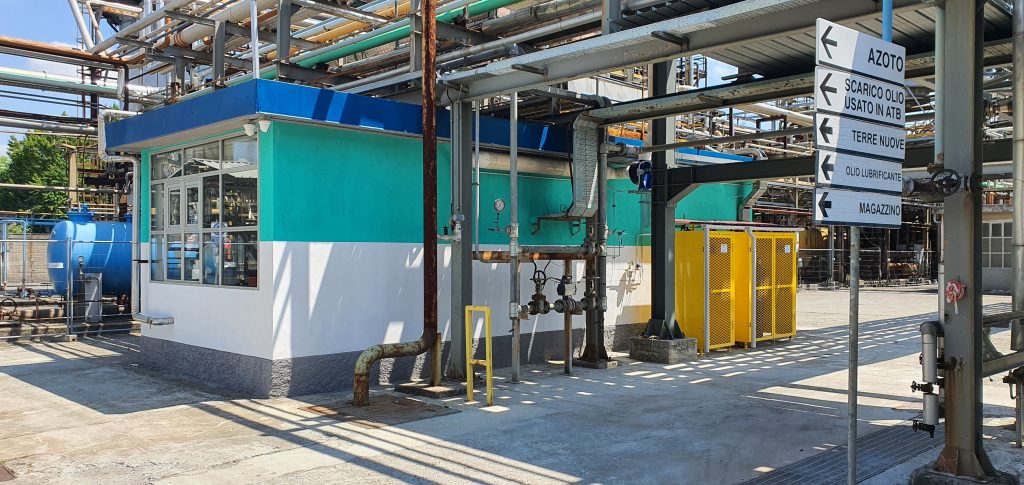
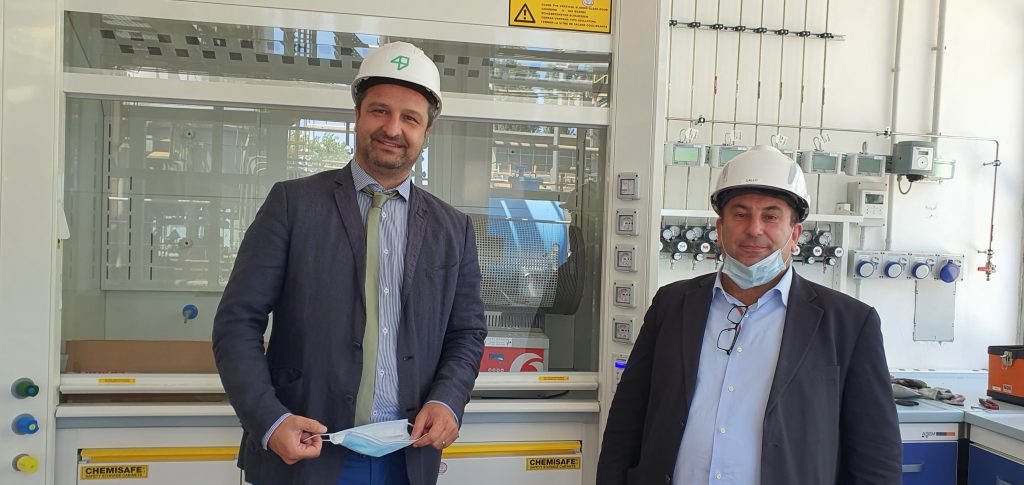
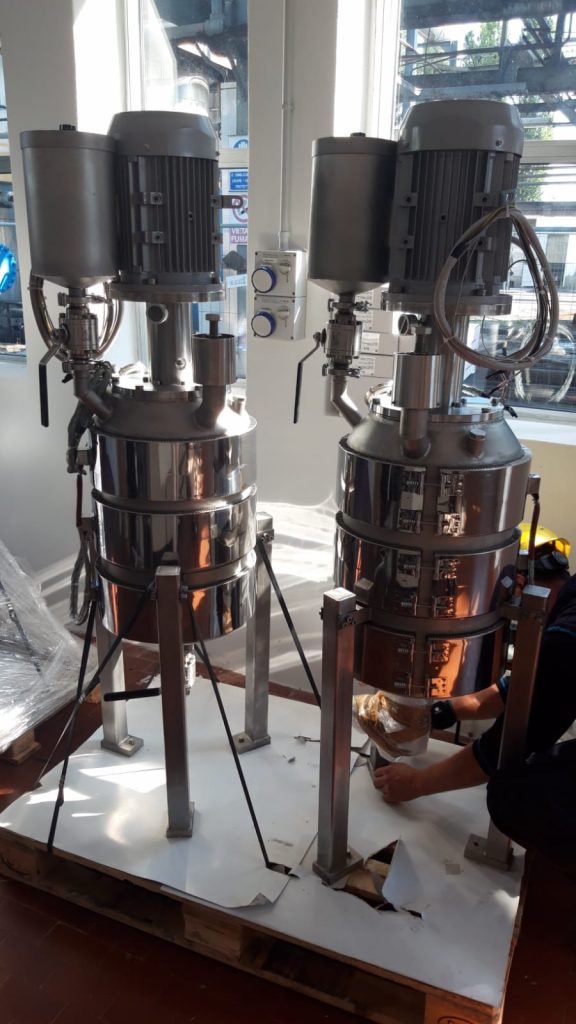
The units dedicated to the industrial validation of PLASBREAKER(TM) technology to convert plastic wastes into lubricants and hydrogen. The technology is a SuPER patented process and apparatus developed in collaboration with Itelyum regeneration. In Q1/2022 the technology will achieve the TRL 8 and the basic engineering for the industrial scale will start.
3 – Immersive SuPER avatar
Two distinct projects are ongoing in the SuPER Centre in collaboration with Schneider-Electric / AVEVA: EYE4EDU and EYEDUCATION. The projects deals with the use of immersive realistic avatars of chemical plants in teaching activities.

